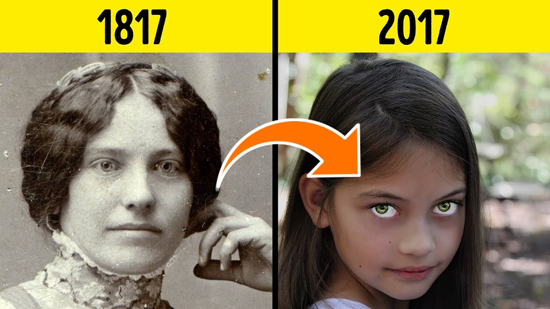Scientific Breakthrough Offers Proof That Reincarnation Exists (2)
Read the first part of the article

Omni:
Do the child’s parents often “ruin” a case before you arrive?
Stevenson: All too often we reach the scene after the subject and his family have met the family about whom he’s been talking. We sometimes have to pare away a great deal of extraneous information. I always prefer to record the child’s account, but sometimes the boy or girl is too shy to talk, and I have to fall back on what parents say about his or her statements. My colleagues and I try to separate what the child said before meeting the other family from what he said later. Obviously the latter has much less value.
I cannot emphasize too strongly that a child who is going to remember a previous life has only about three years in which he will talk about it. Before the age of two or three he lacks the ability. After five, too much else will be happening in his life, and he will begin to forget.
Omni:
How frequently do children claim to have memories of a past life?
Stevenson: We don’t yet know the incidence of cases. All we know are those that come to us. One survey of a township in northern India found one case for every five hundred persons. This would almost certainly understate the matter, as many cases never go beyond the immediate family. Even in cultures where reincarnation is accepted, parents sometimes think such memories are harmful. They are often upset by what the child remembers. Parents would not be particularly pleased to have a murdered child, not to mention a murderer, reincarnate in their family.
Omni:
What would predispose someone to remember a previous life?
Stevenson: Violent death is a factor in our cases. In more than seven hundred cases in six different cultures, sixty-one percent remembered having died violently. But are these cases actually representative? Those involving accidents, murders, and suicides are bound to get more attention than others in which the child remembers a quiet life. Children also tend to remember the final years or a previous life. Almost seventy five percent of our children appear to recall the way they died, and if death was violent, they remember it in vivid detail.
Omni:
You’ve stated that boys remember more often than girls.
Stevenson: Yes, but boys are presented to us more often than girls. A girl may not be marriageable if she is the notorious subject of a case, so she may be kept in the background. In a series of one thousand ninety-five cases from around the world, sixty-two percent were male. I can’t explain this, unless men are more likely to die violent deaths.
Omni:
Why do most Westerners ridicule the idea of reincarnation?
Stevenson: It’s hard to find any single explanation. Some southern European Christians believed in reincarnation until the Council of Nice banned such beliefs in 553 A.D. In The Republic, Plato described souls about to be reborn as choosing their future lives. Schopenhauer took it seriously, and Voltaire’s observation that it is no more surprising to be born twice than once is well-known. Yet most scientists nowadays do not believe in survival after death. I suppose Darwinian ideas contributed to a sort of dethroning of the soul. Reincarnation may be particularly uncongenial because it’s so much identified – mistakenly, I think – with the Hindu and Buddhist ideas of being reborn as an animal.
Omni:
What has it been like to swim against the tide?
Stevenson: Invigorating! (Laughs)
Omni:
What criticism is most frequently leveled at your work?
Stevenson: That the cases occur most where people already believe in reincarnation. If a child seems to refer to a previous life, it’s argued that his parents encourage him and may unwittingly feed the child information about a deceased person. I call this the socio-psychological interpretation of the cases. It is said that despite all my efforts, I have not eliminated the possibility that the subject of a case learned everything he knew through normal channels. Once a child comes to believe he or she was a particular person in a previous life, the argument goes, the other elements follow naturally. If you believe you had been stabbed to death in a previous life, you might have a phobia, for example, of knives.
While this is a valid argument for a small number of cases, especially those occurring in the same family or village, it’s inapplicable for long-distance cases where a child shows a detailed knowledge about a family his parents have never heard of, let alone met. But my critics say I must have overlooked something, that the child must have learned about the deceased.

Omni:
Why do all the cases seem to be in Asia? Couldn’t critics find any in the West?
Stevenson: Oh, absolutely. I am convinced that if child psychologists and psychiatrists, as well as pediatricians, family doctors, and parents, would listen to children and observe them with reincarnation in mind, they would make valuable discoveries. Children often seem to express memories of previous lives in their play and sometimes in their drawings.
Omni:
Scientists usually dismiss reincarnation as some sort of wishful thinking. Yet William James noted that our desire to believe in survival after death does not automatically negate its possibility. We do want to believe in it, don’t we?
Stevenson: No, in fact we don’t. That’s a misunderstanding concerning Hindus and Buddhists. They believe in it, but they don’t particularly want to. Hindus see life in terms of a constant cycle of births in which we are doomed to struggle and suffer until we have reached perfection and can escape. Fear of death is almost universal; and some two thousand years ago Patanjali, an Indian sage, said it was due to our fear of having to undergo a postmortem review of our lives, to be judged and presumably be found wanting.
Omni:
Your new book discusses some misconceptions about the idea of reincarnation. What is the most common?
Stevenson: The idea that reincarnation must include what Hindus call KARMA, especially retributive KARMA.
Omni:
Retributive KARMA being the idea that whatever bad you do in this life is paid for in the next by having the same amount of evil done to you?
Stevenson: Something like that. It can be more specific, so that if you put out someone’s eyes, you will be blinded. On the other hand, the notion of a succession of lives with improvement in each is precisely the view of the Druze, a Muslim sect of Lebanon, a people I’ve worked with a lot. They believe God sends us into different sorts of lives, perhaps as a fisherman, then a banker, then maybe a pirate. But in each life we should do the best we can, if a banker, one should be thoroughly honest! Whether pirate or peasant, it’s all summed up at the Day of Judgment. Your conduct could be vicious in one life, and in the next, you might be reborn into elegant circumstances.
Omni:
In your new book you speak reprovingly of people easily persuaded by your evidence. Is your position that reincarnation can never really be demonstrated?
Stevenson: I don’t think I rebuke anybody for being convinced by the evidence. All I say is that maybe they shouldn’t believe on the basis of what’s in that particular book, because the detailed case reports are in my other books. Essentially I say that the idea of reincarnation permits but doesn’t compel belief. All the cases I’ve investigated so far have shortcomings. Even taken together, they do not offer anything like proof. But as the body of evidence accumulates, it’s more likely that more and more people will see its relevance.
I’m not much of a missionary. Most of that was drained out of me on my first trip to India. I did have a certain zeal when I first went there. When I talked to Ramakrishna Swami in Chandigarh, he asked me what I was doing, and I replied with a certain enthusiasm. After a long silence he finally said: “We know that reincarnation is true, but it doesn’t make any difference because here in India we have just as many rogues and villains as you have in the West.” End of interview.
Omni:
Many claims are made for the authenticity of previous lives based on memories supposedly recovered under hypnosis. You have pointed out why these are likely to be fraudulent.
Stevenson: In my experience, nearly all so-called previous personalities evoked through hypnotism are entirely imaginary and a result of the patient’s eagerness to obey the hypnotist’s suggestion. It is no secret that we are all highly suggestible under hypnosis. This kind of investigation can actually be dangerous. Some people have been terribly frightened by their supposed memories, and in other cases the previous personality evoked has refused to go away for a long time.

Omni:
Yet there are some cases that might argue in its favor. You seem persuaded by the evidence for Bridey Murphy. [In 1952 a Colorado housewife claimed that under hypnosis she relived memories of a previous life as an Irish girl, Bridey Murphy, living in 1806.]
Stevenson: Yes, I think it is one of the few. We’ve discussed cases of children and adults who have been able to speak a tongue they could not possibly have learned; the term for this is xenoglossy. Although rare, they do occur. One that I published concerns the wife of a Methodist minister who, after having been hypnotized by her husband, began to speak German – not very well, but German nonetheless – and described the life of a teenage girl who may have lived in Germany in the late nineteenth century. So I’m not saying that hypnosis is never a useful tool, but I do deplore the commercial exploitation and misleading claims that are often made. A large part of what emerges under hypnosis is pure fantasy. Some of these “previous lives” have been traced back to historical novels.
There is another English case going back to the turn of the century that was studied by a Cambridge don, in which a young woman seemed to be describing the life of one Blanche Poynings, a person around the court of Richard II in the fourteenth century. She gave a lot of detail about the people concerned, including proper names and the sort of life she lived. The investigators kept on probing, and a little later they began asking her about sources of information. In her trancelike state the girl herself came out with a reference to a book, Countess Maud, published in the latter part of the nineteenth century, a classic Victorian novel all about a countess at the court of Richard II. The subject had modified it a little bit, but basically it was all in the novel, and it turned out that her aunt had a copy of the book. She didn’t remember reading it, but she remembered turning the pages. So you have that kind of case.
Omni:
Have you found evidence of conscious hoax?
Stevenson: There are a few. In a recent paper on seven cases of deception and self-deception, my colleagues and I describe hoaxes or informants who had deceived themselves about the strength of evidence. I may have been hoaxed in other cases without knowing it, but I think not often. The average villager in Asia and Africa doesn’t have time to devise a hoax. He or she often begrudges us the time it takes to conduct an interview. There is no money to be made and no particular local renown to be had. Successful fraud takes the cooperation of numerous witnesses and a child drilled to perfection. It’s not a serious problem for us, although gross self-deception can happen. For instance, I was shown two Alevi children in Turkey who were said to be the reincarnation of President Kennedy. These kinds of cases are uncommon and relatively easy to detect.
Cryptomnesia, or source amnesia, is another matter. A child could obtain some information normally and then forget it. It’s a possibility I consider in every case, but it’s not a satisfactory explanation for most long-distance cases, since too much information is needed to put together a believable set of previous-life memories. Sometimes, though, there may be paramnesia – a mixing up of memories. The Druze, who often have such a strong desire to trace a deceased person that they may be too anxious to find the child they’re looking for, jump to conclusions on the basis of very slender evidence. You might call it unconscious wish fulfillment.
Omni:
Do you see in reincarnation a glimpse of a larger purpose?
Stevenson: Well, yes, I do. My idea of God is that He is evolving. I don’t believe in the watchmaker God, the original creator who built the watch and then lets it tick. I believe in a “Self-maker God” who is evolving and experimenting; so are we as parts of Him. Bodies wear out; souls may need periods for rest and reflection. Afterward one may start again with a new body.
Omni:
Do you disagree with most bioscientists, who hold that what we call mind or soul is actually a part of brain activity?
Stevenson: The assumption that our minds are nothing but our brains appears to receive support when you consider the effect of injury, surgery, a high fever, or one or two drinks of whiskey on our mental processes. Some neuroscientists say knowledge that they have only just begun to show how brain processes account for mental ones. But they claim to know that they or their successors will work it all out. They are sure there can be no other explanation, therefore they consider no other. We are not pledged to follow all the received opinions of neuroscientists, however. Recently, a small number of psychologists and philosophers have begun to ask whether mind can ever be fully explained in terms of brain functioning.

Omni:
You’ve said that more girls remember boys’ lives than the reverse.
Stevenson: That’s right. The overall ratio is two to one. Of one hundred sex-change cases [cases in which the child recollects having been a different sex in a previous life], sixty-six will be females remembering previous lives as boys. I’ve discussed this in some Burmese cases. It may be culturally more acceptable in Burma to say that you, as a girl, were once a boy than the reverse. A boy would be teased mercilessly. It is easier to come up with statistics than to interpret them. In a culture in which to change one’s sex is not acceptable, perhaps such cases are never reported even when they do occur.
Omni:
The possibility of sex change puts the question of homosexuality and gender confusion in a new light, doesn’t it?
Stevenson: Yes. When it was fashionable to ascribe all emotional disorders to the ineptitude of one’s parents, cases of gender-identity confusion were blamed on parents. A biological explanation, such as Klinefelter’s syndrome [a genetic condition in which a male is born with an extra X, or female, chromosome] can explain some, but not all cases. Western psychiatrists and psychologists do not have a satisfactory explanation for this, whereas in Southeast Asian cultures, gender-identity confusion is considered one result of reincarnation and taken calmly.
Read the third part of the article
yogaesoteric
July 6, 2018
